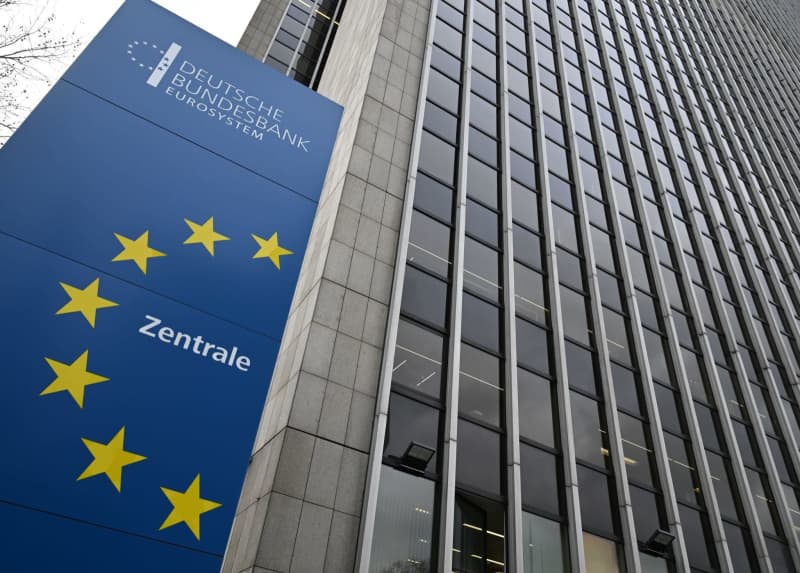A stele with the inscription “Deutsche Bundesbank Eurosystem” stands in front of the Bundesbank headquarters. Arne Dedert/dpa
Germany’s struggling economy likely stagnated over the third quarter, the country’s central bank said on Thursday.
The Bundesbank’s monthly report for October found that gross domestic product (GDP) probably remained steady “at best” in the summer quarter, adjusted for price changes.
The forecast is a downgrade from September’s report, which suggested that the third quarter would likely see minor growth.
The reasons for the pessimism are the ongoing crisis in the automotive sector, weakness in industry and US President Donald Trump’s trade policies.
“Industry continues to suffer not only from structural problems, but also from the increased US tariffs,” said the Bundesbank. “Production, real turnover and real exports of goods have recently declined.”
Europe’s largest economy has been mired in an extended slump following two consecutive years of recession.
While Chancellor Friedrich Merz has promised to turn around the economy since taking office in May, GDP dropped 0.3% in the second quarter, and the Bundesbank’s report suggests that the third quarter did not see a marked improvement.
Industrial orders have declined, the central bank noted, while production declined in August after a strong July.
While the recovery in the construction sector is still a long time coming, consumers are holding back on spending.
The Bundesbank sees a glimmer of hope in economic data from the ifo Institute pointing to a somewhat more robust industrial economy at the end of the year.
Forecasters expect the German economy to grow by only 0.1% to 0.2% this year, before rising beyond 1% growth in 2026.
